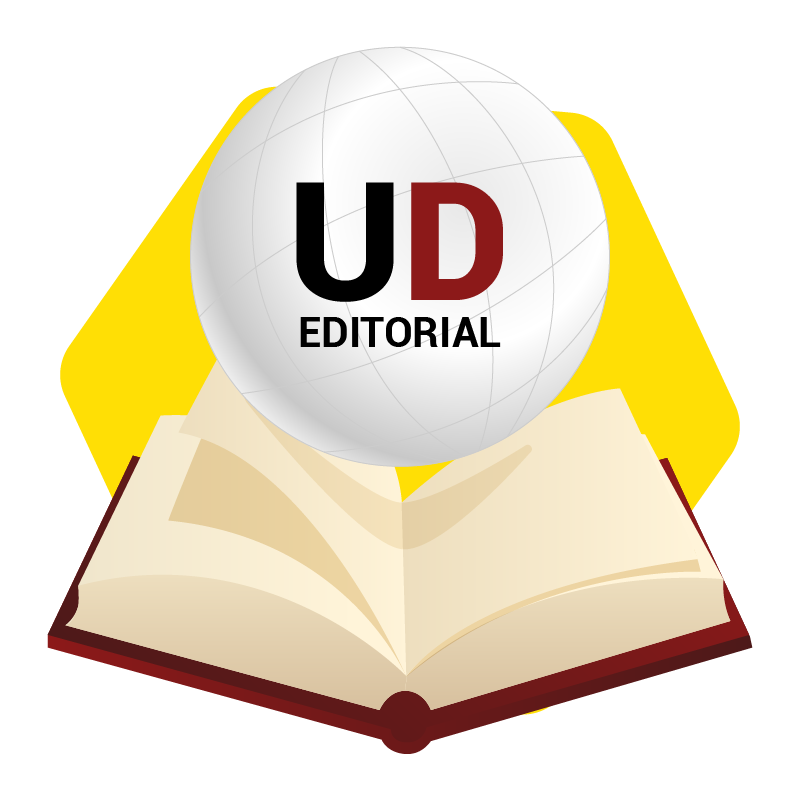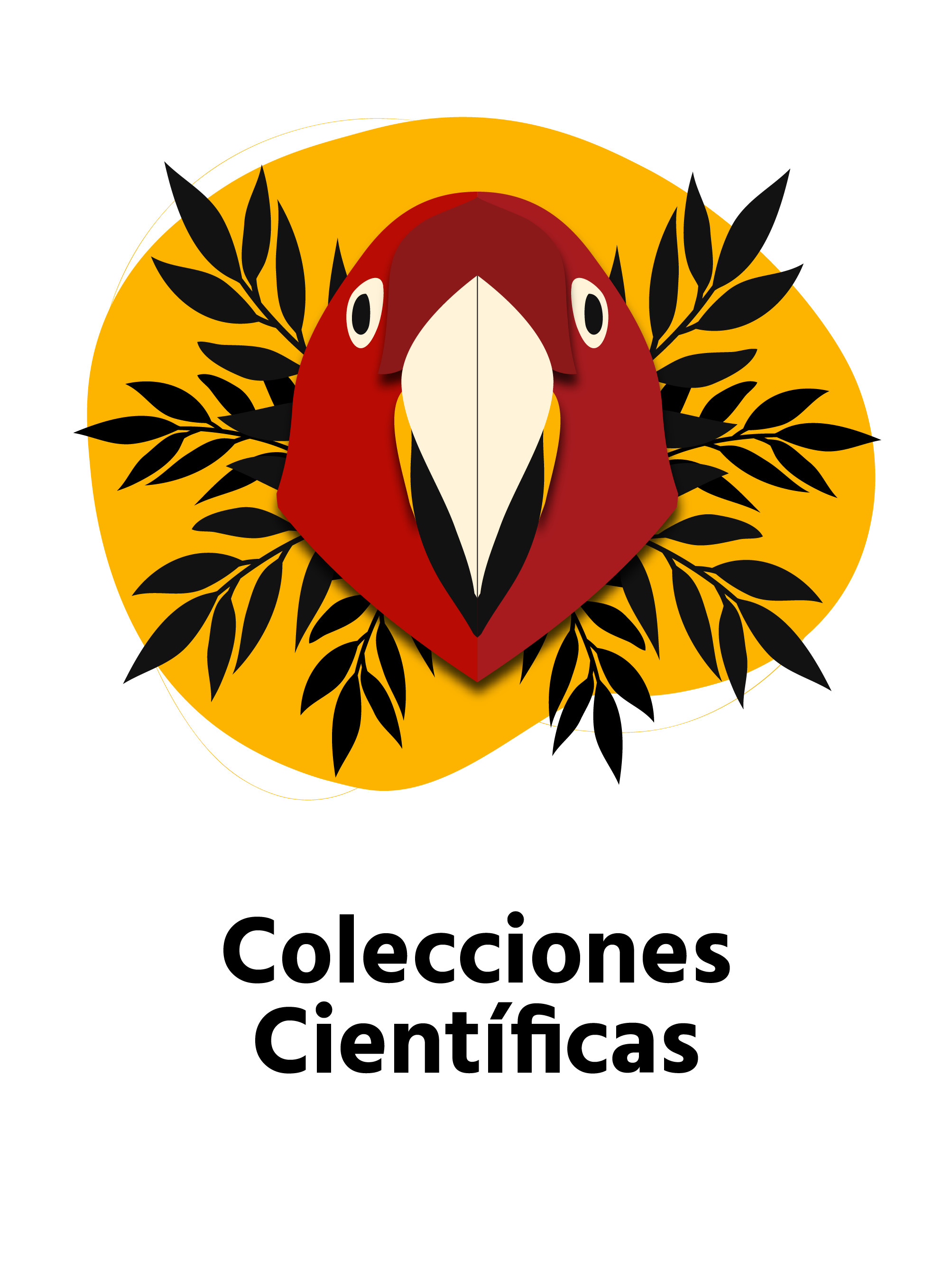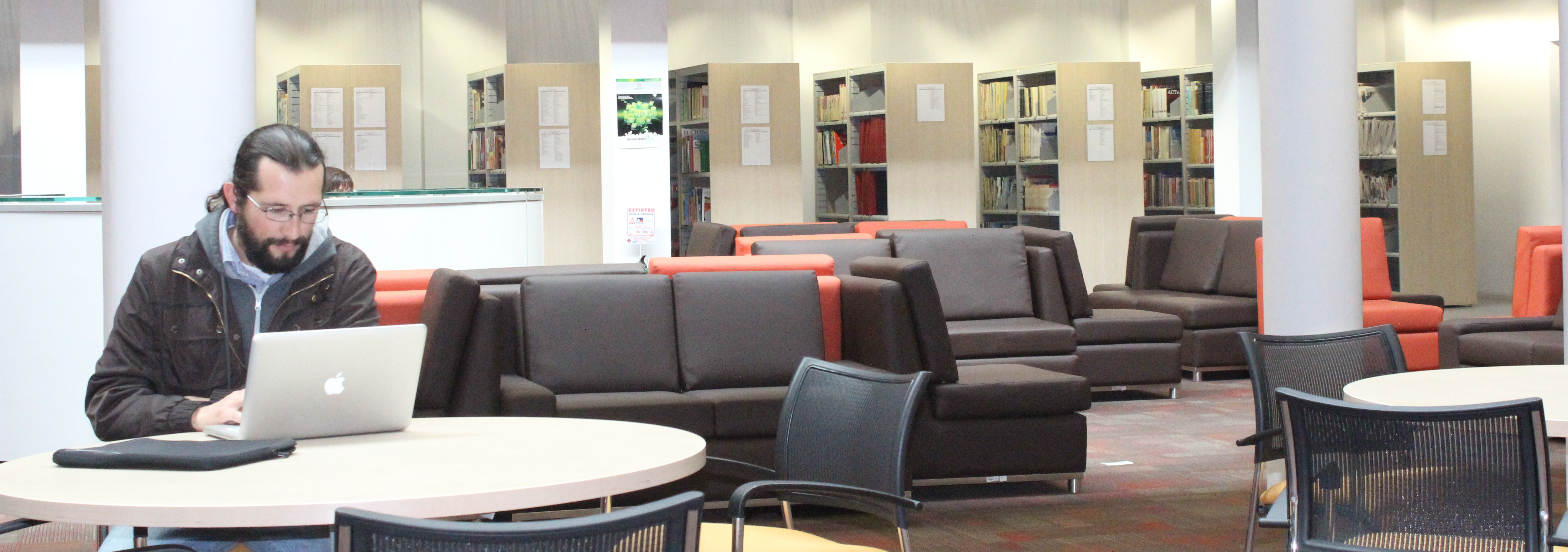
Repositorio Institucional
Universidad Distrital - RIUD
El Repositorio Institucional de la Universidad Francisco José de Caldas RIUD es una herramienta donde se depositan los objetos digitales que corresponden a la producción intelectual de la Universidad para proteger, preservar, y difundir.

Colecciones Especiales y Patrimoniales
Ver

Producción Editorial
Ver

Recursos Educativos Abiertos
Ver

Tesis y Disertaciones - Maestría y Doctorado
Ver

Trabajos de Pregrado y Especializaciones
Ver

Colecciones Científicas
Ver
Envíos recientes
Configuración de la programación del informativo digital de colmundo radio en el año 2024
(Universidad Distrital Francisco Jose de Caldas) Amariles González , Gina Paola; Obando Melenje, Mariana; Sáenz Rodríguez , Luz Elena; Sáenz Rodríguez, Luz Helena [0009-0007-4472-5539]
This research project, undertaken as interns for the Social Communication and Journalism curriculum project on the radio program "Informativo Digital," aims to analyze the program's structure in order to identify the newsroom processes. It also describes the segments covered in the broadcasts, which are not only transmitted via radio but also streamed on Facebook and YouTube, thus generating a wider flow of information for the audience. Furthermore, it examines the parameters used to measure audience reach. The report describes the most significant activities, such as writing news articles, radio announcing, multimedia content creation, and news research. Finally, it highlights "Informativo Digital's" commitment to keeping the public informed through its radio broadcasts
Evaluación del uso y tratamiento de aguas residuales en la empresa Doña Carmen para su reincorporación en el proceso productivo
(Universidad Distrital Francisco Jose de Caldas) Blanco Jaramillo María Valentina, Valentina Blanco; Guevara Cifuentes Laura Julieth , Laura Guevara; González Ramírez, Luisa Fernanda; Aclima. (2025). La industria necesita avanzar en gestión hídrica para ser más sostenible. Blog Aclima. https://aclima.eus/la-industria-necesita-avanzar-en-gestion-hidrica-para-ser-mas-sostenible/; Aguirre. (2009). Gestión ambiental empresarial: Pasado, presente y futuro de las normas e instituciones ambientales en Colombia. Universidad Libre. https://revistas.unilibre.edu.co/index.php/libreempresa/article/view/2927; Amezquita & Tovar . (2022). Generalidades sobre métodos de desinfección mediante radiación ultravioleta. Revista RETO (SENA). https://revistas.sena.edu.co/index.php/RETO/article/download/5463/5956; Ática. (2024). Día Mundial del Agua: retos y soluciones para el futuro hídrico de Colombia. https://www.atica.co/dia-mundial-del-agua-retos-y-soluciones-para-el-futuro-hidrico-de-colombia; Bajpai. (2017). Externa treatment technologies used for pulp and paper mill effluents. Elsevier. https://doi.org/10.1016/b978-0-12-811099-7.00006-x; Banco Mundial. (2021, 18 marzo). Colombia: rica en agua, pero con sed de inversiones. https://www.bancomundial.org/es/news/feature/2020/09/02/colombia-water-security; Banco Mundial. (2025). Agua: panorama general. https://www.bancomundial.org/es/topic/water/overview; BBVA. (2025) ¿Qué son y cómo se pueden clasificar las aguas residuales? BBVA NOTICIAS. https://www.bbva.com/es/sostenibilidad/que-son-y-como-se-pueden-clasificar-las-aguas-residuales/; Benavides & Muvdi. (2014). Evaluación de la ósmosis inversa y de la evaporación. Revista Ingeniería y Organización. https://revistas.uis.edu.co/index.php/revistaion/article/view/4150/5167; Burbano, M. (2024). Diagnóstico del sistema de tratamiento de aguas residuales industriales de la empresa Joli Foods. Universidad de Antioquia. https://bibliotecadigital.udea.edu.co/server/api/core/bitstreams/724fc0aa-fc41-4fbf-8199-e702c4cf06bd/content; CAS. (s.f.). Recurso hídrico. Corporación Autónoma Regional de Santander. https://www.cas.gov.co/gestion-corporativa/gestion-de-planeacion/recurso-hidrico; Cassano, A. et al. (2018). Journal of Water Process Engineering, 21.; Congreso de Colombia. (1993). Ley 142 de 1994 por la cual se establece el régimen de los servicios públicos domiciliarios y se dictan otras disposiciones. https://www.funcionpublica.gov.co/eva/gestornormativo/norma.php?i=2920; Congreso de Colombia (2014). Ley 1715 de 2014 Por medio de la cual se regula la integración de las energías renovables no convencionales al Sistema Energético Nacional. https://www.funcionpublica.gov.co/eva/gestornormativo/norma.php?i=53079; Congreso de Colombia (1997). Ley 373 de 1997 por la cual se establece el programa para el uso eficiente y ahorro del agua. ANLA. https://www.anla.gov.co/07rediseureka2024/normativa/leyes/ley-373-de-1997-programa-para-el-uso-eficiente-y-ahorro-del-agua-pueaa; Congreso de Colombia. (1993). Ley 99 de 1993 por la cual se crea el Ministerio del Medio Ambiente, se reordena el sector público encargado de la gestión y conservación del medio ambiente y los recursos naturales renovables. Diario Oficial No. 41.146.; Constitución Política de Colombia (1991). Arts. 79 y 80. Diario Oficial No. 39.703. https://www.constitucioncolombia.com/; Copco, A. (s. f.). Proceso de lodos activados en el tratamiento de aguas residuales - Atlas Copco. Atlas Copco. https://www.atlascopco.com/es-co/compressors/industry-solutions/wastewater-treatment/aeration-blowers-activated-sludge-process; Corponariño. (2020). Formulación de metas de la carga contaminante del quinquenio 2020–2024. https://corponarino.gov.co/wp-content/uploads/2020/08/DOCUMENTO-METAS-DE-CARGA-CONTAMINANTE-QUINQUENIO-2020_2024.pdf; Covilla, M. (2022). Propuesta de producción más limpia en una fábrica de arepas de maíz. Universidad EIA. https://repository.eia.edu.co/bitstream/11190/4433/10/CovillaMelissa_2022_PropuestaProduccionLimpia.pdf; Cristina. (2023). El rol vital del agua en la industria: retos y soluciones. Almar Water Solutions. https://almarwater.com/es/el-rol-vital-del-agua-en-la-industria-retos-y-soluciones/; DigoodCMS. (2025, 26 mayo). Reverse Osmosis System Cost Guide. https://es.stark-water.com/article/reverse-osmosis-system-cost-guide-how-much-does-an-industrial-ro-system-really-cost-in-2025.html; Eawag & Spuhler, D. (s.f.). Activated sludge. SSWM. https://sswm.info/factsheet/activated-sludge; Enlace Televisión. (2024) Sequía, racionamiento de agua y prevención de incendios en Barbosa, Santander. | Noticias, Deportes y Entretenimiento En Santander. https://enlacetelevision.com/2024/04/16/sequia-racionamiento-de-agua-y-prevencion-de-incendios-en-barbosa-santander/; Everflow. (2024). ¿Qué industrias consumen más agua y por qué? https://everflowutilities.com/blogs/which-industries-use-the-most-water-and-why; Fortich, M. (2022, 28 abril). Economía circular: el círculo de valor. Saving The Amazon. https://savingtheamazon.org/blogs/news/economia-circular-el-circulo-de-valor; García. (2024). Aguas residuales industriales: tipos y tratamientos. https://gargil.es/aguas-residuales-industriales/#:~:text=Las%20aguas%20residuales%20industriales%20son,tratar%20de%20una%20forma%20especial.; Galeano. (s.f.). Guía de operaciones, procesos e instalaciones industriales. https://www4.ujaen.es/~ecastro/proyecto/operaciones/movimiento/sedimentacion.html; Garrido-Baserba, M. et al. (2020). Journal of Cleaner Production, 247.; Geissdoerfer, M., Savaget, P., Bocken, N. M., & Hultink, E. J. (2017). The Circular Economy – A new sustainability paradigm? Journal Of Cleaner Production, 143, 757-768. https://doi.org/10.1016/j.jclepro.2016.12.048; Global Growth Insights. (2024). Las 10 principales empresas de tratamiento biológico de aguas residuales del mundo. https://www.globalgrowthinsights.com/es/blog/biological-wastewater-treatment-companies-251; Hernández-Sancho, F. & Molinos-Senante, M. (2014). Water Research, 56; Hoekstra, A. Y., Chapagain, A. K., Aldaya, M. M., & Mekonnen, M. M. (2011). Manual de huella hídrica. https://www.waterfootprint.org/resources/TheWaterFootprintAssessmentManual_Spanish.pdf; IDEAM. (2010). Guía para el monitoreo de vertimientos, aguas superficiales y subterráneas. Instituto de hidrología, meteorología y estudios ambientales https://corponor.gov.co/corponor/sigescor2010/EVALUACION%2CSEGUIMIENTO%20Y%20CONTROL/Guia_monitoreo_IDEAM.pdf; IDEAM. (2022). Estudio Nacional del Agua 2022. Instituto de hidrología, meteorología y estudios ambientales. https://www.ideam.gov.co/sala-de-prensa/informes/publicacion-jue-23032023-1200; IDIGER. (s.f.). Cambio climático. Instituto Distrital de Gestión del Riesgo y Cambio Climático. https://www.idiger.gov.co/rcc; Jhuesa Tratamiento de Aguas. (2025, 18 febrero). Ósmosis inversa. https://jhuesa.com/tecnologias/osmosis-inversa; Marmol, J. (2024). Demanda hídrica. IDEAM. https://www.ideam.gov.co/atencion-y-servicios-a-la-ciudadania/glosario/demanda-hidrica; Metcalf y Eddy, AECOM (2014). Ingeniería de tratamiento de aguas residuales y recuperación de recursos . McGraw-Hill Education https://repositori.mypolycc.edu.my/jspui/handle/123456789/4586; Ministerio de Ambiente y Desarrollo Sostenible. (2015). Resolución 0631 de 2015 por la cual se establecen los parámetros y valores máximos permisibles en los vertimientos puntuales a cuerpos de aguas superficiales y al alcantarillado público.; Ministerio de Ambiente y Desarrollo Sostenible. (2021) Resolución 1256 de 2021 Por la cual se reglamenta el uso de las aguas residuales y se adoptan otras disposiciones. Alcaldía Mayor de Bogotá. https://www.alcaldiabogota.gov.co/sisjur/normas/Norma1.jsp?i=118863; Ministerio de Ambiente y Desarrollo Sostenible. (2021). Política nacional de gestión integral del recurso hídrico. https://www.minambiente.gov.co/wp-content/uploads/2021/10/Politica-nacional-Gestion-integral-de-recurso-Hidrico-web.pdf; Ministerio de Ambiente y Desarrollo Sostenible. (2021). Política Nacional de Economía Circular. https://www.minambiente.gov.co; Ministerio de Ambiente y Desarrollo Sostenible. (2022). Evaluaciones ambientales estratégicas. https://www.minambiente.gov.co/asuntos-ambientales-sectorial-y-urbana/evaluaciones-ambientales-estrategicas/; Ministerio de Ambiente, Vivienda y Desarrollo Territorial. (1974). Decreto 1575 de 1974 por el cual se establece el Sistema para la Protección y Control de la Calidad del Agua para Consumo Humano. https://www.funcionpublica.gov.co/eva/gestornormativo/norma.php?i=30007; Ministerio de Ambiente, Vivienda y Desarrollo Territorial. (1981) Decreto 2857 de 1981 “Por el cual se reglamenta la Parte XIII, Título 2, Capítulo III del Decreto- Ley 2811 de 1974 sobre Cuencas Hidrográficas y se dictan otras disposiciones.” https://www.funcionpublica.gov.co/eva/gestornormativo/norma.php?i=1550; Ministerio de Ambiente, Vivienda y Desarrollo Territorial. (2010). Decreto 3930 de 2010 por el cual se reglamenta parcialmente el Título I de la Ley 9ª de 1979 y el Capítulo II del Título VI de la Ley 99 de 1993 en cuanto a usos del agua y residuos líquidos. Diario Oficial No. 47.583.; Morales, J. (2023). Tecnologías de tratamiento de aguas para la industria alimentaria. https://vitaqua.es/tecnologias-de-tratamiento-de-aguas-para-la-industria-alimentaria-2/; Nick, N. (2020). Pros and cons of wastewater treatment methods. https://www.wateronline.com/doc/pros-and-cons-of-wastewater-treatment-methods-coagulation-and-disinfection-0001; Novaquimica Colombia S.A. (2025, 24 febrero). Clarificación - Novaquimica Colombia. Novaquimica Colombia. https://novaquimica.com.co/clarificacion-2/; ONUDI. (2008). Manual de producción más limpia. https://www.unido.org/sites/default/files/2008-06/Toolkit_0.pdf; ONU. (s.f.). ODS 6: Agua limpia y saneamiento. https://agenda2030lac.org/es/ods/6-agua-limpia-y-saneamiento; Overton, P. (2023). How much does an industrial water treatment system cost? https://samcotech.com/how-much-does-an-industrial-water-treatment-system-cost/; Pascual, A. (2021). Eficiencia hídrica y producción de alimentos - Fundación Aquae. https://www.fundacionaquae.org/mejorar-la-eficiencia-hidrica/; Pedrero, L. D. (2024). Usos del agua en la industria alimentaria. https://escuelaalimentaria.com/usos-del-agua-en-la-industria-alimentaria/; Precio Bajo Sistemas de Tratamiento de Agua. (2024). ¿Cuánto cuesta construir una pequeña planta de tratamiento de agua? https://es.chunkerowaterplant.com/news/mini-water-plant-price; Pure Water. (2015). Osmosis inversa- un proceso sofisticado de filtración por membranas. Pure Water. https://purewater.com.co/osmosis-inversa-un-proceso-sofisticado-de-filtracion-por-membranas/#:~:text=La%20%C3%B3smosis%20inversa%20(OI)%20es,agua%20de%20alimentaci%C3%B3n%20de%20calderas.; Resolución 1207 de 2014. Ministerio de Ambiente y Desarrollo Sostenible. https://www.minambiente.gov.co; Restrepo, M. (2012). Producción más limpia en la industria alimentaria. https://repository.unilasallista.edu.co/server/api/core/bitstreams/93ea5f88-82d6-41a9-b839-1dfaf604d684/content; Romero. (2008). Tratamientos utilizados en potabilización de agua. Universidad Rafael Landívar. https://fgsalazar.net/LANDIVAR/ING-PRIMERO/boletin08/URL_08_ING02.pdf; Rosales. (2025). Lodos activados: qué son y en qué consiste este proceso. Grupo Acura. https://grupoacura.com/es/blog/lodos-activados/; Sánchez. (2025). Reutilización de agua industrial en Latinoamérica. Veolia. https://golatam.veoliawatertechnologies.com/es/blog/reutilizacion-de-agua-industrial-en-latinoamerica-tecnologias-y-casos-exitosos; Sela, G. (2024). El proceso de lodos activados. Cropaia. https://cropaia.com/es/blog/lodos-activados/; Sensactive. (2025, 21 agosto). Contaminación de Aguas Residuales en la industria alimentaria. Sensactive Tech. https://sensactivetech.com/aguas-residuales-en-la-industria-alimentaria/; SeoSimple. (2024). ¿Qué son los clarificadores de agua y cómo funcionan? https://peru.pochteca.net/clarificadores-de-agua-que-son; Simate, G. S. & Cluett, J. (2019). J. Env. Chem. Eng., 7(1).; Solutions, A. T. (2018). What is sedimentation in water treatment. https://aosts.com/what-is-sedimentation-in-water-treatment-types-settling-tanks/; Tarantino, E. (2016). Efectos de aguas residuales agroindustriales en suelos. https://www.researchgate.net/publication/310621753; Tarantino, A. et al. (2016). Journal of Cleaner Production, 112.; Telwesa. (2023). El impacto ambiental de las aguas residuales. Telwesa. https://telwesa.com/impacto-ambiental-aguas-residuales/%7B; Telwesa. (2024). Eficiencia hídrica, un reto que debemos alcanzar. Telwesa. https://telwesa.com/eficiencia-hidrica-reto/; Tchobanoglous, G., Stensel, H. D., Tsuchihashi, R., & Burton, F. L. (2014). Wastewater engineering: Treatment and reuse (5th ed.). McGraw-Hill. https://www.mheducation.com/highered/product/wastewater-engineering-treatment-and-resource-recovery-metcalf-and-eddy.html; UNEP. (2019). United Nations Environment Programme.; Universal, R. E. (2019, 22 marzo). La receta de Bimbo para cuidar el agua. https://www.eluniversal.com.mx/cartera/negocios/esta-es-la-receta-de-bimbo-para-cuidar-el-agua/; Universidad Nacional de Colombia. (s.f.). Calculadora de huella hídrica. https://minas.medellin.unal.edu.co/campus-sostenible/calculadora-huella-hídrica; Vásquez & Ramos. (2023). Propuesta de mejora en el proceso de tratamiento de aguas residuales en la PTRIL. UPC. http://hdl.handle.net/10757/670802; Valdivielso (2024). ¿Qué es un sistema de lodos activados? iAgua. https://www.iagua.es/respuestas/que-es-sistema-lodos-activados; Works. (2019). La industria alimentaria absorbe el 70% del consumo mundial de agua. https://www.aguasresiduales.info/revista/noticias/la-industria-alimentaria-absorbe-el-70-del-consumo-mundial-de-agua-bChNV
This study was conducted at the Doña Carmen company, located in the municipality of Barbosa, Santander, which is dedicated to the production of peeled corn arepas. The main objective is to design a technical proposal that allows treated wastewater to be reincorporated into its production process, thus contributing to the efficient use of drinking water and reducing the environmental impact associated with industrial activity. The methodology includes the characterization of water management at each stage of the process, the identification of critical points, and the formulation of improvement actions under criteria of sustainability, water efficiency, and cleaner production. This proposal is aligned with the Sustainable Development Goals (SDGs), in particular SDG 6—clean water and sanitation—and proposes local solutions that promote responsible and circular water resource management. As for the limitations that arose and hindered the full development of the proposal, it was identified that the research is based on secondary sources, therefore there was no direct sampling of physicochemical analyses of the water, given that as it is a technical proposal it will not be implemented. Likewise, the cost calculation is based on secondary information and case studies from other companies, which means that the results are an approximation rather than actual data.
Evaluación del estado de la información forestal en el Anuario Estadístico de Cundinamarca
(Universidad Distrital Francisco José de Caldas) Rodriguez Quintero , Ana Sofia; Espinosa, Helmut; Espinosa Garcia Helmut [0000-0001-9341-3995]
Forest information systems are critical for evidence-based environmental management. This study assesses the status of forest-related indicators in the Statistical Yearbook of Cundinamarca (2017–2024), focusing on data quality, continuity, and technical robustness. A six-stage methodological framework was applied, including indicator assessment, SWOT analysis, technical quality evaluation under Colombian Technical Standards, integration of official datasets, multitemporal satellite analysis using Landsat 8 imagery, and the design of standardized update protocols. The results indicate substantial temporal discontinuities, limited data completeness, and weak institutional articulation. However, data integration and standardization significantly improved indicator consistency and enabled the incorporation of new strategic metrics, including natural forest cover percentage, annualized forest loss, and restoration-related tree planting. The study highlights the need for standardized protocols and interoperable systems to enhance the reliability and sustainability of forest information. The proposed framework provides a transferable methodological approach for strengthening subnational environmental information systems.
Estudio de prefactibilidad para la creación de una empresa para venta de colchones en la ciudad de Bogotá D.C
(Universidad Distrital Francisco José de Caldas) Corzo Arciniegas , Laura Natalia; Sanchez Romero, Nicolas Santiago; Romero Duque, Gustavo Andrés; Romero Duque, Gustavo Andrés [0000-0002-3194-9943]
This project was carried out with the purpose of developing a prefeasibility study to determine the technical and economic viability of creating a company dedicated to the commercialization of mattresses in the city of Bogotá. In order to achieve this objective, analyses were conducted in the market, technical, and financial areas, which made it possible to obtain a comprehensive view of the project's feasibility.
The market study identified the potential demand for mattresses and analyzed prices, innovation trends, and sector opportunities, allowing for the establishment of a clear consumer profile and the competitive advantages necessary to enter the market.
The technical study made it possible to determine the key actions required for business operations, such as infrastructure, human resources, logistics, and technological needs, as well as the structuring of distribution and commercialization processes to ensure efficiency and quality in service delivery.
Finally, the economic–financial analysis showed that the project is viable, demonstrating positive and sustainable results, thus confirming its attractiveness for implementation.
Estrategias para la implementación de los sistemas avanzados de asistencia al conductor (adas) en Colombia: un análisis comparativo con prácticas internacionales
(Universidad Distrital Francisco José de Caldas) Escudero Eguis, Kelly Johanna; Tamayo Zapata, Diego Armando; Vargas Vargas, Wilson Ernesto
This study aims to analyze the level of adoption, effective use, and barriers to the implementation of Advanced Driver Assistance Systems (ADAS) in Bogotá, Colombia, and to propose viable strategies to strengthen road safety at the national level. A mixed-methods approach was used, combining documentary analysis, international benchmarking and an empirical component based on surveys applied to drivers of vehicles equipped with ADAS. A total of 296 initial responses were collected, and after applying eligibility criteria (residence in Bogotá, vehicle type, driving frequency, model year 2019–2025, and actual presence of ADAS), a final valid sample of 124 drivers was obtained. Results indicate that ADAS adoption in Colombia is fragmented and closely linked to vehicle segment: basic systems such as parking sensors and reversing cameras are prevalent, whereas critical safety technologies like AEB, FCW, LKA or TSR remain limited in both availability and use. Despite these constraints, 79% of respondents reported that at least one ADAS helped them avoid a collision or hazardous situation, and more than 97% expressed strong confidence, perceived usefulness, and ease of use. However, significant barriers persist, including high vehicle cost, lack of knowledge, insufficient training, and absence of mandatory regulation. The study concludes that although ADAS generate tangible safety benefits, their overall impact in Colombia is constrained by economic, technological, and institutional limitations. The thesis proposes an integrated set of implementation strategies aimed at improving access, standardization, and technological adoption to support a more advanced and safer national vehicle fleet.












